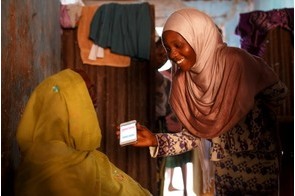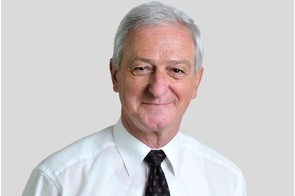Nigeria launches plan for prevention and control of NCDs

Summary
According to the 2018 WHO country profile, NCDs accounted for an estimated 29 percent of all deaths in Nigeria with cardiovascular diseases as the primary cause of NCD-related deaths followed by cancers, chronic respiratory diseases and diabetes.
The Nigerian Federal Ministry of Health (FMoH) – in collaboration with the World Health Organization (WHO) and other stakeholders – has launched the first National Multisectoral Action Plan (NMSAP) for the Prevention and Control of Non-communicable Diseases (NCDs). The plan was launched in fulfilment of the country's commitment made at the 2018 United Nations High-level meeting on NCDs.
At the meeting in September of last year, member-states – includeng Nigeria – committed to 13 new steps to tackle NCDs, including cancers, heart and lung diseases, stroke, and diabetes, and to promote mental health and well-being.
“NCDs are a major source of disease and death globally,” Alhaji Abdullahi Mashi, Permanent Secretary at the FMoH, said during the official flag-off of the NMSAP. “In Nigeria, research by WHO in 2018 shows NCD prevalence to stand at 29 percent, Cardio vascular diseases at 11 percent, cancer 4 percent and diabetes 2 percent.”
According to a statement released on Wednesday, the programme will be implemented by WHO through FMoH in partnership with other key stakeholders such as departments and agencies, non-governmental organizations, civil society organizations, research institutes and the academia.
While communicable diseases remain the primary cause of death in Nigeria, the country is currently facing an increase in the burden of NCDs with premature mortality from NCDs estimated at 22 percent, said WHO. According to the 2018 WHO country profile, NCDs accounted for an estimated 29 percent of all deaths in Nigeria with cardiovascular diseases as the primary cause of NCD-related deaths (11 percent) followed by cancers (4 percent), chronic respiratory diseases (2 percent) and diabetes (1 percent). Other NCDs in Nigeria include Sickle Cell Disease, deafness and hearing loss, blindness, violence and injury including road traffic crashes, oral health including Noma and disability.
“The NCD NMSAP is therefore coming at a very appropriate time. We need to hit the ground running and ensure we eliminate NCDs as stated in the NMSAP between 2019-2025,” Mashi added.
WHO also said NCD risk factors lie in sectors beyond the health sector. That is why the key strategy to solving the problem is to use a multisectoral approach.
“Getting multiple ministries from across Nigeria in one room to discuss NCDs in no small feat,” said Clement Peter Lugala, Officer in Charge (OiC), WHO Nigeria. “The journey to beating NCDs should start with tackling the risk factors of NCDs and promoting healthy lifestyles. We have a lot to do, but we need to work together. The NMSAP is not just about a conversation or a document, but it’s about ‘how we implement the plan’.”
NCDs – mainly cardiovascular diseases (CVDs), cancers, chronic respiratory diseases, diabetes and Mental Health Disorders – are the world’s biggest killers and have now been termed “a silent epidemic”. Among these diseases, CVDs are the number one cause of death accounting for 17.5 million deaths annually with high blood pressure found to be the leading risk factor for CVDs. These diseases share common risk factors which are; tobacco use, harmful use of alcohol, unhealthy diet, physical inactivity and air pollution.
The launch of the plan was supported by Resolve to Save Lives, a five-year campaign funded by Bloomberg Philanthropies; the Chan Zuckerberg Initiative and the Bill & Melinda Gates Foundation.
Related
-
HelpMeSee launches campaign to eradicate cataract blindness in the Gambia
The Ministry of Health is collaborating with HelpMeSee in “Campaign to Eliminate Cataract Blindness by 2018.”
-
Bloomberg donates $25 million to eradicate polio
Private donors, like Bloomberg, are at the forefront of closing the $1.3 billion funding gap for polio eradication.
-
How to fight antimicrobial resistance
The parasite that causes malaria is developing resistance to artemisinin, which forms the basis for the most effective ...








